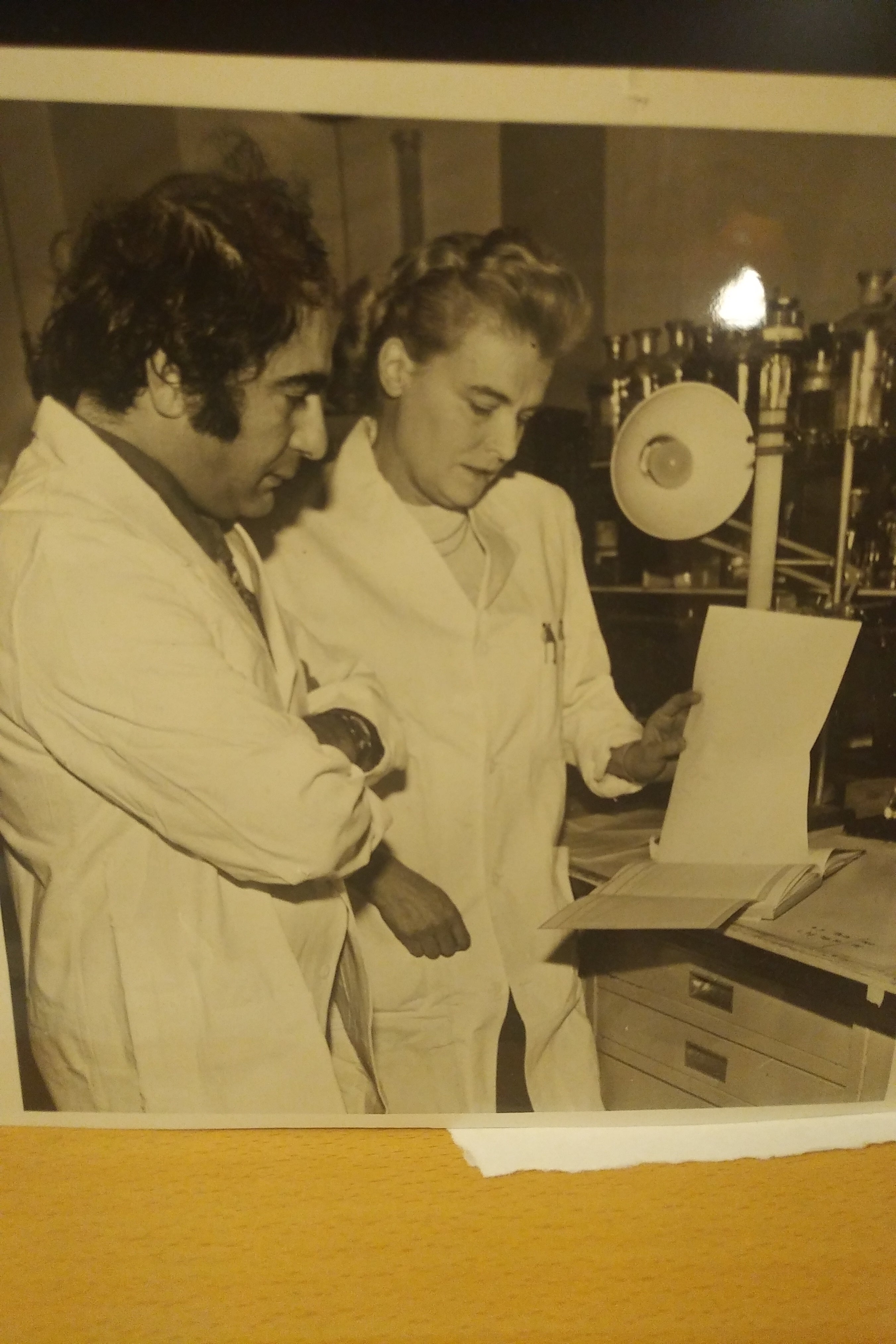A vaccine 50 years in the making: How a London scientist laid the foundations for the coronavirus jab decades ago
‘When I first heard about Covid I thought “what a pity I don’t have a lab” because I wanted to do something about it’

Your support helps us to tell the story
From reproductive rights to climate change to Big Tech, The Independent is on the ground when the story is developing. Whether it's investigating the financials of Elon Musk's pro-Trump PAC or producing our latest documentary, 'The A Word', which shines a light on the American women fighting for reproductive rights, we know how important it is to parse out the facts from the messaging.
At such a critical moment in US history, we need reporters on the ground. Your donation allows us to keep sending journalists to speak to both sides of the story.
The Independent is trusted by Americans across the entire political spectrum. And unlike many other quality news outlets, we choose not to lock Americans out of our reporting and analysis with paywalls. We believe quality journalism should be available to everyone, paid for by those who can afford it.
Your support makes all the difference.Getting his Pfizer vaccine this week was the culmination of a near 50-year scientific journey for Professor Gregory Gregoriadis, who first proposed the technique the Covid vaccine, and now the whole world, is relying on.
The 86-year-old scientist authored a paper with the late biochemist Brenda Ryman while they were both working at the Royal Free Hospital School of Medicine in 1971.
It made the pioneering suggestion of using liposomes, or tiny droplets of fat, to deliver drugs into the human body.
Then in 1974 Prof Gregoriadis co-authored a paper published in the journal Nature, describing the benefits of liposomes in vaccines.
Fast forward to 2021 and both the Pfizer and Moderna Covid vaccines are using similar technology to deliver the genetic instructions that help the human body fight off Covid-19.
Speaking to The Independent from his home in Northwood, Middlesex, Prof Gregoriadis said he was “very happy” to have received the Pfizer vaccine on Sunday, adding: “Getting the vaccine made me very euphoric.
“We were the first to suggest liposomes as vaccine carriers. You publish papers and you hope it is significant, but I never imagined it would come to this point and be used in a pandemic like this.”
He added: “When I first heard about Covid I thought ‘what a pity I don’t have a lab’ because I wanted to do something about it.”
The Pfizer and Moderna vaccines both use lipid nanoparticles which encapsulate and transport mRNA into the body, which causes cells to create the spike protein of Covid-19, generating an immune response which protects against the virus.

This technology is a direct descendant of the research carried out by Prof Gregoriadis which led to the development of vaccines for hepatitis A and flu in the 1990s.
The key discovery, in London in the 1970s, was the role of liposomes as an “immunological adjuvant” in vaccines, helping the body to produce more antibodies in response to the vaccine.
Without the role of lipids in the vaccine, it’s likely the Pfizer jab would be far less effective at creating immunity.
Prof Gregoriadis said: “Covid-19 vaccines are a momentous event, certain to save the lives of countless numbers of people. I’m proud that the vaccine technology being used in the global fight against coronavirus has its origins in the work we first carried out in London 50 years ago.
“It’s been incredibly exciting to be involved with and then read about the developments that have taken place since then which have now culminated in so many therapeutic applications, and vaccines which are being rolled out globally.
“On a personal level I’m delighted to have recently had the Pfizer vaccine myself as it has been shown to be highly effective. I’m looking forward to spending more time with my grandchildren as my wife Susan and I didn't see them as much as we’d like to in 2020.”
Born in Athens, Prof Gregoriadis is professor emeritus at University College London and has published nearly 400 research papers, reviews, articles and book chapters, as well as 27 volumes on drug and vaccine delivery.
Describing how the discoveries were made he said: “In 1970 I joined Brenda Ryman’s laboratory at The Royal Free Hospital School of Medicine to work on systems that can target the liver in the therapy of glycogen storage disease where glycogen accumulates in the liver because of the absence of an enzyme.
“One of the systems under consideration was nylon microcapsules. I rejected nylon as non-biodegradable.”
He said another scientist in the lab was working on liposomes and he and Dr Ryman agreed to try and use the fat droplets to trap the enzyme needed and deliver it to the liver.
“It turned out that by shaking the dry lipid with water containing the enzyme, the enzyme was entrapped in the liposomes.”
This triggered years of further research and breakthroughs that led scientists to the development of the coronavirus vaccines.
Prof Gregoriadis told The Independent he believed the technology would continue to improve and the lipid nanoparticle approach, which he said was better and easier to manufacturer than other vaccines, would become even more common in future.


Join our commenting forum
Join thought-provoking conversations, follow other Independent readers and see their replies
Comments